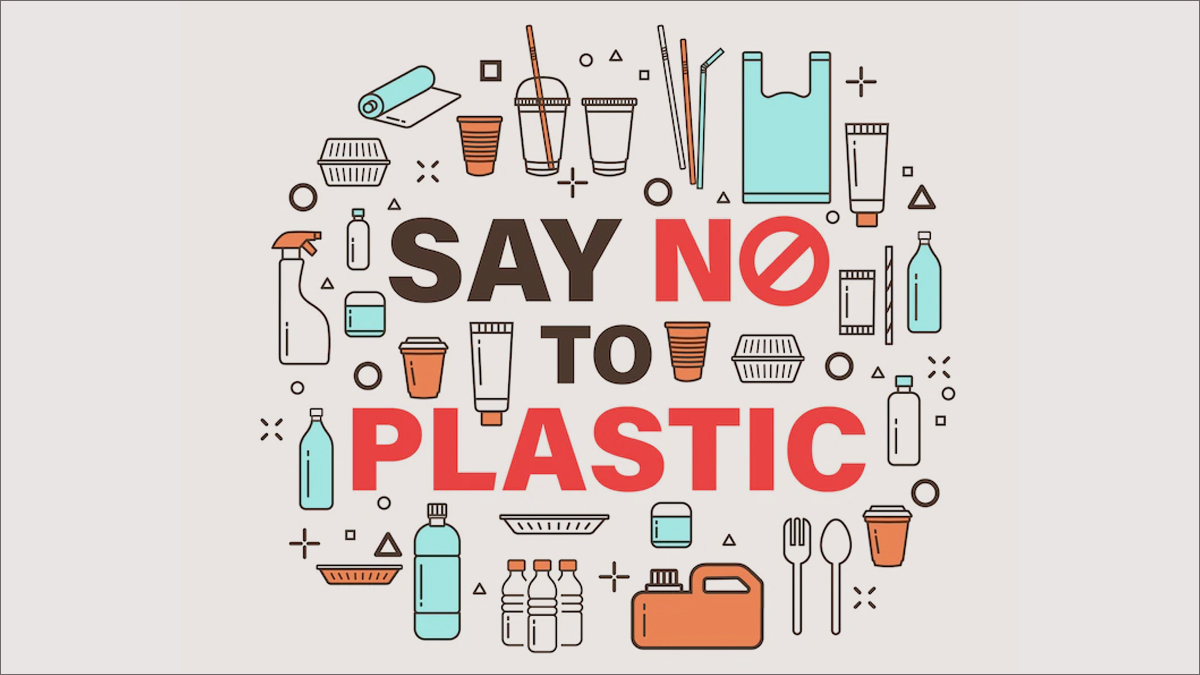EDITORIAL:
DESPITE the relentless endeavors of successive administrations, the quandary of tobacco consumption persists as a formidable public health hurdle for Pakistani authorities. This pernicious habit, which inflicts a litany of fatal ailments including cancer, cardiovascular disorders, diabetes, and an array of respiratory diseases, is an entirely avoidable catalyst for premature death. Astonishingly, our authorities have chosen to tread lightly when it comes to implementing stringent measures aimed at curbing the prevalence of tobacco use and deterring potential initiates.
The regulation of the tobacco industry, to put it mildly, remains distressingly lackadaisical. Even tobacco manufacturers themselves lament the unbridled proliferation of a thriving black market for tobacco products within Pakistan. The uncontrolled sale of these harmful commodities proceeds unabated, devoid of any responsible oversight, enabling even children to procure cigarettes from their local paan stalls with alarming ease.
While it is true that recent years have witnessed a surge in taxes imposed on tobacco products, particularly cigarettes, one must question whether this measure alone is sufficient to dissuade a vulnerable population from embracing such a pernicious and potentially lethal vice. Health officials express justified concerns that these measures may fall short of achieving the desired impact.
It is high time for a comprehensive reassessment of our approach to tackling this pressing public health crisis. Merely tinkering with taxation policies is akin to applying a band-aid to a gaping wound. The gravity of the situation necessitates a far more robust and proactive strategy.
First and foremost, we must address the regulatory gaps that have allowed the tobacco industry to operate with such flagrant disregard for public well-being. Stringent enforcement mechanisms must be implemented to crack down on illicit trade and curb the accessibility of tobacco products to vulnerable demographics, especially our impressionable youth.
Furthermore, a comprehensive public awareness campaign is imperative to educate citizens about the detrimental consequences of tobacco use. Such campaigns should be rife with eye-catching visuals, hard-hitting slogans, and captivating narratives to capture the attention of the masses. It is essential to debunk the glamorous imagery associated with smoking and instead highlight the stark reality of its devastating health implications.
In addition, partnerships with educational institutions, community organizations, and healthcare providers should be forged to establish targeted intervention programs. These initiatives can empower individuals to break free from the clutches of tobacco addiction and equip them with the necessary tools to lead healthier lives.
Moreover, we must invest in comprehensive cessation programs to support individuals in their journey towards a tobacco-free existence. These programs should provide a multifaceted approach, offering counseling, pharmacological aids, and support networks to bolster individuals’ chances of successfully quitting.
Ultimately, the battle against tobacco consumption requires a concerted effort from all stakeholders. Lawmakers, public health officials, civil society organizations, and citizens alike must unite to combat this grave public health menace. The time for complacency has long passed; now is the time for bold action and unwavering commitment to safeguard the well-being of our nation.
Earlier this year, a gathering in Islamabad echoed with stark revelations about the ballooning number of tobacco enthusiasts in the nation, which has now soared to a staggering 31 million. A bone-chilling statistic emerged, exposing the grim reality that a mind-numbing 466 individuals succumb to tobacco-induced ailments each passing day. However, the most distressing revelation shared during the conference sent shockwaves through the audience: a harrowing 1,200 children between the tender ages of six and fifteen embrace the treacherous path of smoking every single day across our beloved land. Such dire circumstances demand urgent action.
The economic toll exacted by this lethal habit is equally mind-boggling, severing a substantial 1.6 percent of our nation’s GDP, amounting to a jaw-dropping sum of over Rs600 billion annually. These disheartening figures, painstakingly elucidated by Malik Imran Ahmed, the illustrious country head of the esteemed Campaign for Tobacco-Free Kids, ought to jolt us into action. Astonishingly, tobacco taxes merely contribute a meager 20 percent to this colossal sum, as revealed by Mr. Ahmed. As if these revelations were not disconcerting enough, the proliferation of novel tobacco-derived products has now emerged as a menacing specter haunting our esteemed public health experts. Among them, nicotine pouches have garnered particular attention, with their insidious allure rapidly ensnaring unsuspecting non-smokers and paving the treacherous path towards other tobacco-laden vices. The pivotal question that looms large is this: Are our esteemed authorities even paying heed to this gathering storm?
In the face of this mounting crisis, it is imperative that our authorities cast aside any semblance of indifference and rise to the occasion with unwavering resolve. The time for complacency has long passed, and now is the moment to wield the sword of action against this insidious foe.
To commence our battle against this pervasive menace, we must adopt a multi-faceted approach that combines rigorous legislation, comprehensive education, and targeted interventions. First and foremost, our lawmakers must take decisive steps to enact stringent regulations that leave no room for ambiguity or lax enforcement. The tobacco industry, known for its shrewd maneuvering, must be held accountable, and a resolute crackdown on the thriving black market for tobacco products must be undertaken.
Furthermore, our education system must become a bulwark against the encroaching influence of tobacco. Comprehensive programs that instill awareness about the perils of smoking, adorned with vibrant visuals, captivating narratives, and thought-provoking slogans, should permeate our schools and communities. It is imperative to shatter the illusion of glamour associated with smoking and lay bare the stark reality of its destructive consequences.
Simultaneously, targeted interventions tailored to address the vulnerable segments of our society, especially our impressionable youth, are of paramount importance. Collaborative efforts between educational institutions, civil society organizations, and healthcare providers should be fostered to establish support networks and provide cessation programs that empower individuals to break free from the clutches of addiction.
Moreover, the authorities must allocate resources and mobilize dedicated teams to effectively monitor and thwart the emergence of new tobacco-derived products. The sinister allure of nicotine pouches and other such innovations must be countered with swift and decisive measures to safeguard our populace from falling prey to their clutches.
In this arduous battle against tobacco, the collective responsibility rests not only with the authorities but also with each and every citizen. We must embrace the mantra of collective action, raising our voices in unison to demand a smoke-free future for our nation. The media, civil society, and public figures have a crucial role to play in amplifying the urgency of this cause and ensuring that it remains at the forefront of public discourse.
Don’t forget to Subscribe our channel & Press Bell Icon.
Let us not forget that the health and well-being of our citizens should be a top priority for the government. However, when it comes to addressing the issue of tobacco use, our authorities have often fallen short. Despite the detrimental effects of smoking on individuals and society as a whole, efforts to curb tobacco consumption have been insufficient and ineffective.
It is ironic that while tobacco-related diseases continue to claim lives and burden our healthcare system, the regulation of the tobacco industry remains lax. The tobacco giants profit at the expense of public health, while the black market thrives, making it even easier for tobacco products to reach the hands of vulnerable individuals, including children.
The statistics paint a grim picture. With a staggering 31 million smokers in the country, the death toll due to tobacco-induced diseases stands at a shocking 466 per day. What is even more alarming is the fact that every day, approximately 1,200 children between the ages of six and 15 take up smoking. This not only puts their health at risk but also perpetuates a cycle of addiction and disease.
The economic consequences of tobacco use are equally concerning. The habit eats away at our national GDP, with an estimated loss of over Rs600 billion annually, equivalent to 1.6% of our GDP. Despite the imposition of taxes on tobacco products, these measures alone are not enough to deter people from starting or continuing this deadly habit.
To make matters worse, the emergence of new tobacco-derived products poses a fresh challenge to public health. Nicotine pouches, for instance, are gaining popularity and can quickly hook non-smokers on their use, paving the way for further tobacco addiction.
It is high time that the authorities take decisive action. The health and well-being of our citizens should not be compromised for the sake of profit. Stronger regulations must be put in place to curb the influence of the tobacco industry and protect our vulnerable populations, particularly our youth.
Education and awareness campaigns are crucial in changing societal attitudes towards tobacco use. By promoting a smoke-free lifestyle and providing support for smokers who wish to quit, we can create a healthier and tobacco-free Pakistan.
The clock is ticking, and every moment counts. We must prioritize the fight against tobacco, not only for the sake of our citizens’ health but also for the prosperity and future of our nation. Let us not forget that a healthier Pakistan starts with extinguishing the flames of tobacco addiction.
In conclusion, the issue of tobacco use in Pakistan requires immediate attention and decisive action. The health and well-being of our citizens are at stake, and it is essential for the government to prioritize the fight against tobacco addiction.
The current state of affairs, where the tobacco industry enjoys lenient regulations and the black market thrives, is both ironic and concerning. It is unacceptable that tobacco-related diseases continue to claim lives and burden our healthcare system while the authorities turn a blind eye.
The alarming statistics, with 31 million smokers and 466 deaths per day due to tobacco-induced diseases, should serve as a wake-up call. Moreover, the fact that 1,200 children between the ages of six and 15 start smoking daily is a clear indication of the urgent need for action.
The economic consequences of tobacco use are equally worrisome, with a significant loss to our national GDP. Taxes alone are insufficient to deter people from this deadly habit, and stronger regulations must be implemented to protect public health.
The emergence of new tobacco-derived products, such as nicotine pouches, further complicates the situation. Immediate measures are required to address their impact and prevent the addiction cycle from perpetuating.
Education and awareness campaigns play a crucial role in changing societal attitudes towards tobacco use. By promoting a smoke-free lifestyle and providing support for smokers who wish to quit, we can make progress in creating a healthier and tobacco-free Pakistan.
It is time for the authorities to take decisive action and prioritize the health and well-being of our citizens over the profits of the tobacco industry. Strong regulations, enforcement mechanisms, and comprehensive strategies are needed to combat this public health challenge.
A healthier Pakistan starts with extinguishing the flames of tobacco addiction. Let us not forget that our citizens deserve a smoke-free future, and it is our collective responsibility to make it a reality. Together, we can create a healthier and brighter tomorrow for our nation.
Subscribe our website for latest updates:
https://republicpolicy.com/shop/
Read More

















